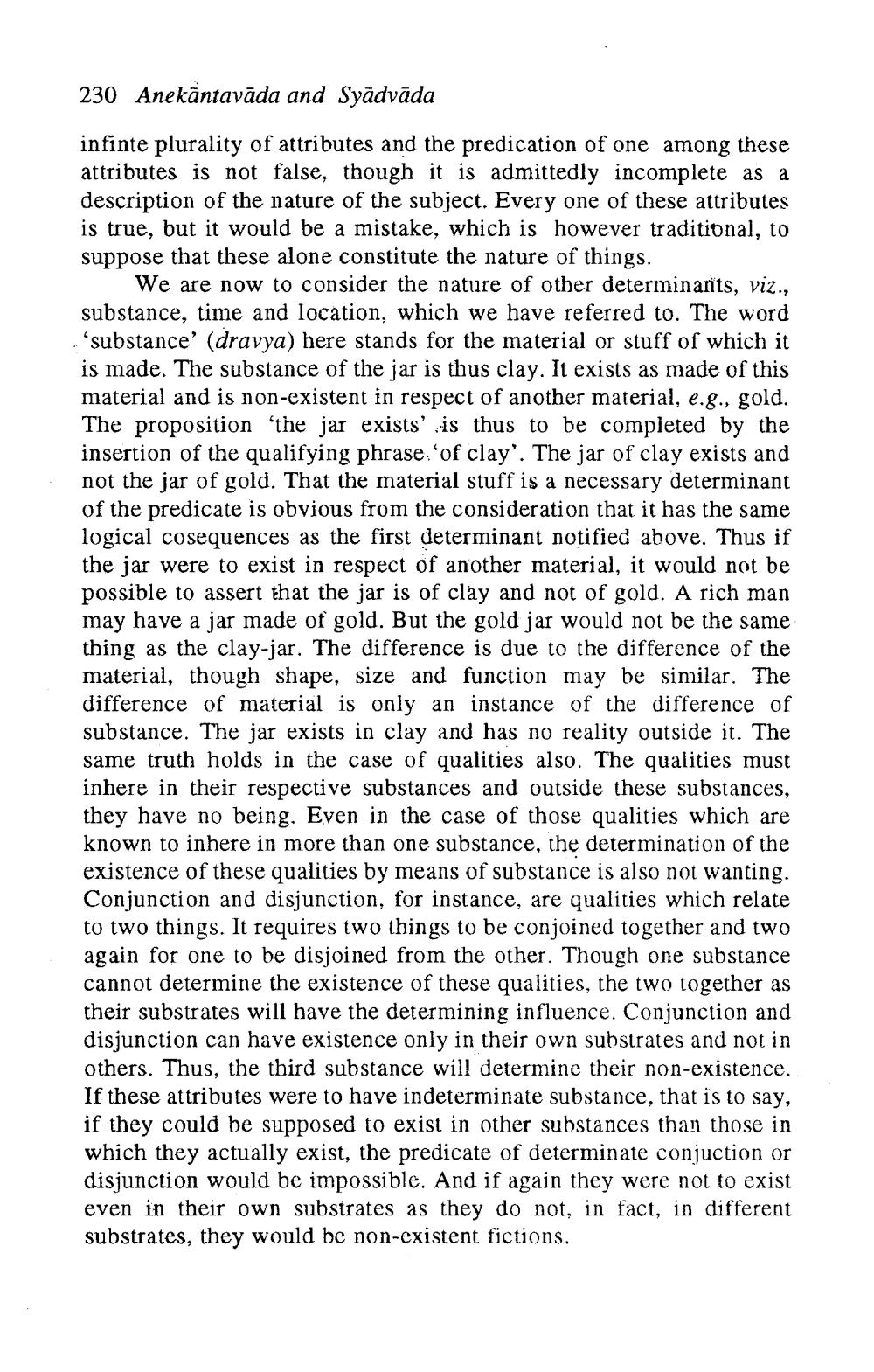________________
230 Anekāntavāda and Syādvāda
infinte plurality of attributes and the predication of one among these attributes is not false, though it is admittedly incomplete as a description of the nature of the subject. Every one of these attributes is true, but it would be a mistake, which is however traditional, to suppose that these alone constitute the nature of things.
We are now to consider the nature of other determinants, viz., substance, time and location, which we have referred to. The word 'substan
nce' (dravya) here stands for the material or stuff of which it is made. The substance of the jar is thus clay. It exists as made of this material and is non-existent in respect of another material, e.g., gold, The proposition the jar exists' is thus to be completed by the insertion of the qualifying phrase 'of clay'. The jar of clay exists and not the jar of gold. That the material stuff is a necessary determinant of the predicate is obvious from the consideration that it has the same logical cosequences as the first determinant notified above. Thus if the jar were to exist in respect of another material, it would not be possible to assert that the jar is of clay and not of gold. A rich man may have a jar made of gold. But the gold jar would not be the same thing as the clay-jar. The difference is due to the difference of the material, though shape, size and function may be similar. The difference of material is only an instance of the difference of substance. The jar exists in clay and has no reality outside it. The same truth holds in the case of qualities also. The qualities must inhere in their respective substances and outside these substances, they have no being. Even in the case of those qualities which are known to inhere in more than one substance, the determination of the existence of these qualities by means of substance is also not wanting. Conjunction and disjunction, for instance, are qualities which relate to two things. It requires two things to be conjoined together and two again for one to be disjoined from the other. Though one substance cannot determine the existence of these qualities, the two together as their substrates will have the determining influence. Conjunction and disjunction can have existence only in their own substrates and not in others. Thus, the third substance will determine their non-existence. If these attributes were to have indeterminate substance, that is to say, if they could be supposed to exist in other substances than those in which they actually exist, the predicate of determinate conjuction or disjunction would be impossible. And if again they were not to exist even in their own substrates as they do not, in fact, in different substrates, they would be non-existent fictions.




